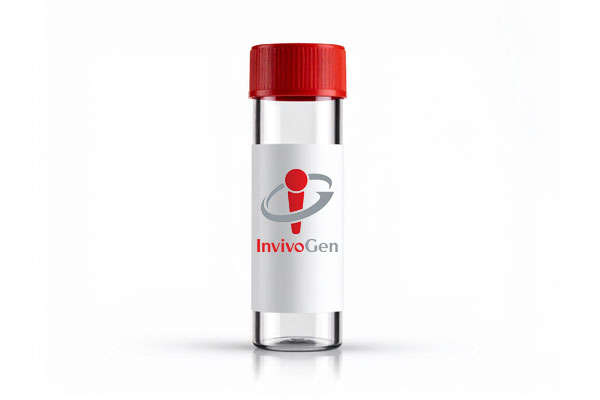
pUNO1-hIRAK1a
-
Cat.code:
puno1-hirak1
- Documents
Expression-ready ORF Clones
Alias: IRAK, pelle
Interleukin-1 receptor-associated kinase 1
Interleukin-1 receptor-associated kinases (IRAKs) are serine/threonine kinases that act as signal transduction mediators for the TLRs. The IRAK family consists of two active kinases, IRAK-1 and IRAK-4, and two inactive kinases, IRAK-2 and IRAK-M [1]. Upon stimulation, the adaptor MyD88 recruits IRAK-1, IRAK-2 and IRAK-4 to the receptor. IRAK-4 then phosphorylates IRAK-1 which dissociates from the receptor and interacts directly with TRAF-6 to relay the signal [2]. Subsequently, IRAK-1 undergoes autophosphorylation followed by degradation. IRAK-4 is an essential component of the IL-1, IL-18 and TLR signaling cascade [2-4].
References:
1. Janssens S. & Beyaert R. , 2003. Functional diversity and regulation of different interleukin-1 receptor-associated kinase (IRAK) family members. Mol Cell. 11(2):293-302.
2. Li S. et al., 2002. IRAK-4: a novel member of the IRAK family with the properties of an IRAK-kinase.Proc Natl Acad Sci U S A. 99(8):5567-72.
3. Lye E. et al., 2004. The role of interleukin 1 receptor-associated kinase-4 (IRAK-4) kinase activity in IRAK-4-mediated signaling. J Biol Chem. 279(39):40653-8.
4. Suzuki N et al., 2003. IL-1 receptor-associated kinase 4 is essential for IL-18-mediated NK and Th1 cell responses. J Immunol. 170(8):4031-5.
Specifications
Human IRAK1 isoform 1 (pUNO1-hIRAK1a)
ORF size : 2139 bp
Subclone : AgeI - NheI
Mouse IRAK1 isoform 4 (pUNO1-mIRAK1d)
Genbank : NM_008363.2 with silent variation in codon Phe708
ORF size : 2133 bp
Subclone : AgeI - EcoRI
Contents
- 20 µg of lyophilized DNA
- 2 x 1 ml blasticidin at 10 mg/ml
![]() Product is shipped at room temperature.
Product is shipped at room temperature.
![]() Lyophilized DNA should be stored at -20°C. Upon receipt, store blasticidin at 4°C or -20°C.
Lyophilized DNA should be stored at -20°C. Upon receipt, store blasticidin at 4°C or -20°C.
![]() Resuspended DNA should be stored at -20°C and is stable for up to 1 year.
Resuspended DNA should be stored at -20°C and is stable for up to 1 year.
![]() Blasticidin is a harmful compound. Refer to the safety data sheet for handling instructions.
Blasticidin is a harmful compound. Refer to the safety data sheet for handling instructions.
DOCUMENTS
Documents
Technical Data Sheet
Safety Data Sheet
Plasmid Map and Sequence
Plasmid Sequence
Certificate of analysis
Need a CoA ?